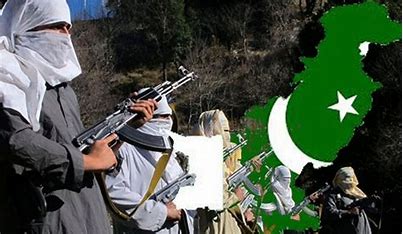New Delhi: The recent increase in terror attacks by Pakistan-based groups in Jammu and Kashmir has underscored the influence that is exercised by the “deep state” that comprises a network of military, intelligence, and political actors—who despite working beneath the surface have been able to steer the way Pakistani state and non-state actors are utilised against India.
While a significant segment of the Pakistani political class, media, and intelligentsia advocates the normalisation of ties with India—recognising its importance for Pakistan’s future and economic prosperity—the likelihood of India pursuing that path remains extremely low.
Officials in Delhi emphasise that this reluctance stems from the inability of Pakistan’s military and political machinery to control and diminish the influence of the deep state, which has consistently interfered through terror proxies whenever normalisation efforts are made by Islamabad.
Recently, Pakistan’s Finance Minister Muhammad Aurangzeb, while advocating for the normalisation of ties with India, stated that “not trading with your neighbours, particularly India, doesn’t make sense.” He made these remarks during a press conference in Washington, held alongside the annual meetings of the International Monetary Fund (IMF) and the World Bank Group.
Aurangzeb was quick to clarify, however, that “political” and “geopolitical” issues were beyond his purview, emphasising that any movement toward normalisation would require the involvement of members from the deep state.
This development came days after External Affairs Minister S. Jaishankar visited Islamabad to attend a conclave of the Shanghai Cooperation Organisation (SCO), marking the first visit by an Indian foreign minister to Pakistan in nine years. In fact, reports from Pakistani media and various international organisations suggested that India was likely to approve Pakistan’s membership in BRICS, a decision that has been pending since August last year.
While optimists on both sides saw this as a step toward normalisation of ties, a series of terror attacks have occurred in Jammu and Kashmir over the past two weeks. This surge in violence coincides with the successful completion of Assembly elections in the union territory—the first in a decade—and the inauguration of a democratically elected government on 16 October.
Since then more than 10 people, including Army officials, have been killed in separate terror attacks that were executed by members of Pakistan-based terror groups. The attacks included the attack
Subsequent action by the Army and intelligence and inputs confirmed that the terrorists involved in these attacks had come to India from inside Pakistan, had got training in using arms, setting up ambush avoiding detection and were provided weapons and other supplies that cost a fortune and cannot be bought in an open market by these individuals who join the terror groups mostly to escape poverty.
Officials indicate that the trend of terror attacks resuming whenever there are signs of a thaw in India-Pakistan relations undermines the domestic security apparatus’ ability to accept any overtures of friendship from Pakistani leaders with blind optimism.
According to them, the “deep state” has more influence on the elected and appointed leaders in Pakistan and the members of this deep state have, historically, decided how India-Pakistan ties will stay. Supporting cross-border incursions into India, for them, often aligns with several strategic and political objectives, which primarily includes destabilising India and Kashmir to keep the region in a state of unrest and internationalising the Kashmir issue as armed escalations, including images of army personnel and encounters, serve to draw global attention to the conflict, which Pakistan sees as an unresolved dispute that needs international mediation.
For this, they have perfected the art of proxy warfare and asymmetric tactics so as to avoid direct military confrontation and maintain plausible deniability in the long stated objective of exhausting India economically and socially by prolonging conflicts and fuelling insurgency.
More importantly, escalations with India allow the Pakistan military to maintain its grip over national security policy and justify its dominance in Pakistani politics which is also necessary in suppressing domestic dissent as heightened tensions with India shifts focus away from internal political and economic problems and rallies public sentiment under nationalist fervour.
Another very important aspect of this whole terrorism play by Pakistan’s deep state, which has not been written about much, is by sending these terrorists to India, Pakistani security agencies are able to maintain a certain level of control over these terror networks and keep them relevant and occupied. With India out of the equation, there is an understanding among the Pakistan army that these groups will turn against the Pakistani establishment and get out of control.

